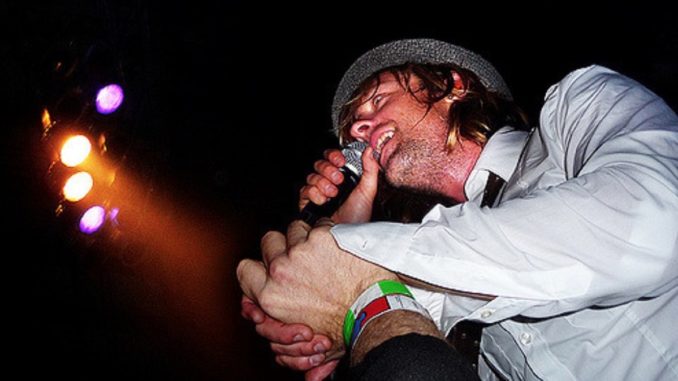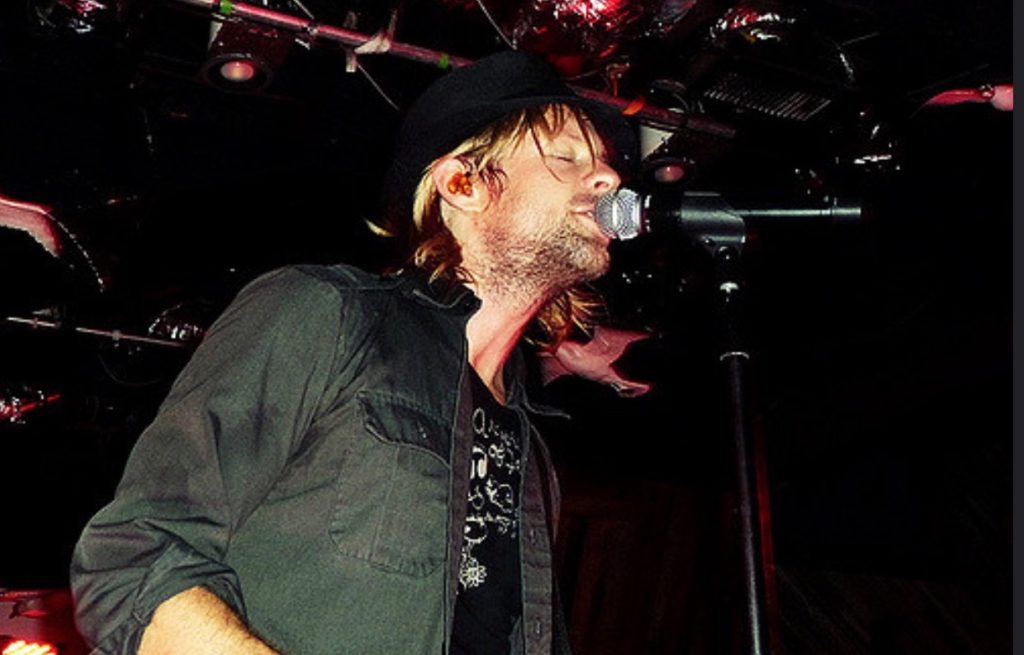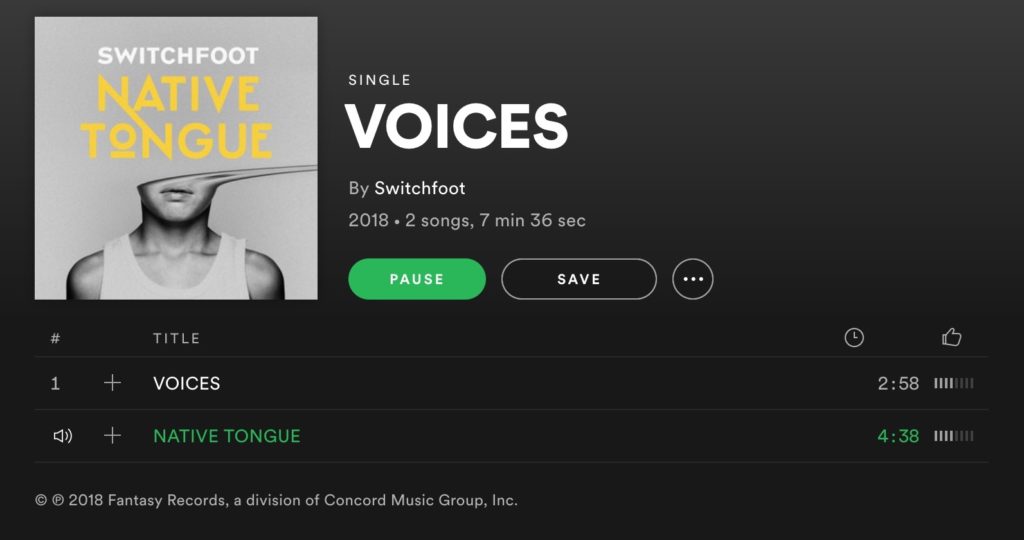
By DAN MACINTOSH
Switchfoot’s Native Tongue is the sound of its lead vocalist and primary songwriter, Jon Foreman, struggling. He’s struggling to perfect the art of love.
He’s reaching to create a world that looks more like Jesus. And he’s falling short. We’re all falling short. Nevertheless, it’s this struggle that makes life worthwhile. It’s this kicking against the darkness until it bleeds daylight that gives living true purpose. Foreman’s Christianity has never been the simplistic, easy answer variety. Instead, his faith has been all about the constant effort to live up to his high ideals. He’s always been transparent, both about his victories and failures.

Ambitious Sonic Creations Like ‘Dig New Streams’
With “Prodigal Soul,” for example, Foreman takes a Bible story usually applied to backsliders, and turns it on himself. He’s no man of spiritual steel. No, he’s more like that pitied prodigal son wandering far from home — more than he’d likely want to admit.
Native Tongue (Fantasy Records) also features Switchfoot trying on a few rarely utilized musical flavors. “The Hardest Art” is a sort of EDM dance effort that finds Foreman trading lines with Kaela Sinclair. For a moment, though, Switchfoot tamps down the musical momentum of this one for an acoustic, folkish segment, before revving it up again. “Dig New Streams” is one of Switchfoot’s most ambitious sonic creations.
It begins as a Beatle-esque chamber pop tune, which evolves into a boozy barroom choir “headed down to New Orleans.” It reads like a soup kitchen sermon when Foreman invites one and all to join a godly feast when he implores: “If you’ve been hurt by the church of black and white.” Switchfoot has always coexisted comfortably with the evangelical Christian movement. Here, though, Foreman takes a well-aimed shot at some of the church’s more legalistic elements; elements that may push away those that might feel unworthy to live up to its high standards.

Will ‘Native Tongue’ Stand the Test of Time
Even one of the album’s most overtly spiritual lyrics, “Joy Invincible,” speaks of a joy set against hard times. It proves Switchfoot is never afraid to get its hands dirty. This band never assumes all will be well if we just sit back lazily in out padded pew world. Rather, this band constantly puts its faith to the test. Sure, religious principles work well in the light of stained-glass windows. But how does it look under the harsh lens of modernity?
Switchfoot and the Art of Love
The album’s title track is a swinging, finger-snapping tune about – you guessed it – practicing the art of love. In this case, one assumes Foreman is referring to every human behavior: Does it live up to the love test? However, Foreman could be commenting specifically on our culture’s growing uncivilized tone. We’re admonished to speak the truth in love, as the Bible instructs, but just join into any political discussion where two opposing sides clash swords, and it’s usually not long before nasty name-calling begins. “I want the world to sing in a native tongue,” Foreman wearily begs. It sounds more like a dream than a possibility, sadly.
Foreman’s Switchfoot is the ultimate optimist band. A little like U2, before it got all grim with Joshua Tree. One is left believing Switchfoot will never give up on acting the part of the still, small encouraging voice — in a world overflowing with ugly cacophony. Now, if only the world could learn to speak Switchfoot’s loving language.

